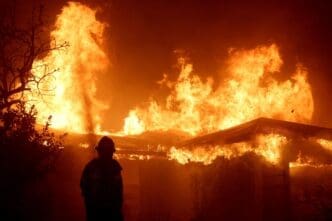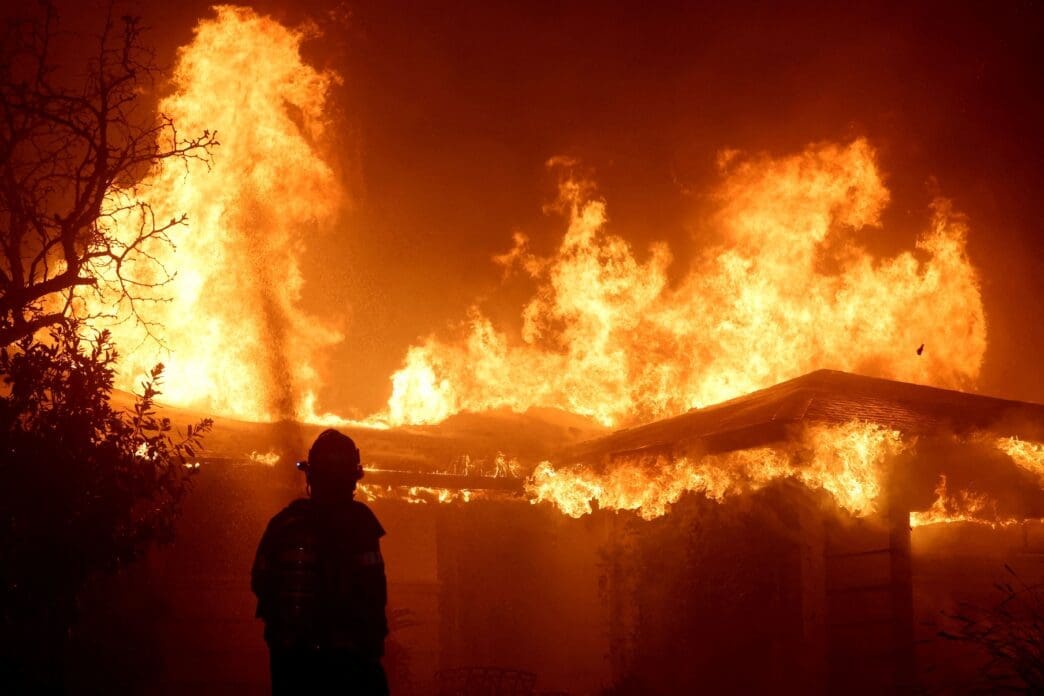In recent memory, the Los Angeles fires stand as a stark reminder of the unpredictability of nature. The infernos, fueled by swift Santa Ana winds, wreaked havoc on neighborhoods like Pacific Palisades, leaving countless displaced. It’s a wake-up call that none of us can afford to ignore. Being prepared isn’t just a motto; it’s a necessity.
Our rapidly changing climate means disasters are no longer rare. As the threat looms larger, the importance of preparedness becomes evident. From assembling a ‘go bag’ to involve your family in an emergency plan, there are steps everyone should take. These daunting tasks can provide reassurance in chaos.
Create a ‘go bag’
Imagine you have moments to leave your home; what do you grab? This is where a ‘go bag’ becomes invaluable. Packed with essentials like toiletries, first-aid, and clean drinking water, it’s your lifeline during emergencies. Remember, the American Red Cross offers kits, but personalizing one ensures you meet your unique needs.
Talk to your family about a plan
Communication is key. Sitting down with family to devise a plan can make the difference in a crisis. This includes plotting evacuation routes and establishing a meet-up point if separated. Discussing potential local disasters helps tailor your family’s action plan efficiently.
Make a list of emergency numbers
When the power’s out, your cellphone might not save you. That’s why keeping a list of emergency contacts is essential. Apart from loved ones, ensure numbers for local authorities, doctors, and insurers are included. Having these on paper can be a lifesaver.
Prepare your vehicle
Your car is more than just a mode of transport; it’s your escape route. Before dire situations, perform vehicle maintenance checks. Ensure the gas tank is full, and tires are fit. Be ready for sudden evacuation needs with a reliable vehicle.
Plan for your pet
Pets are family, too. If evacuation is necessary, list pet-friendly accommodations in advance. Create a pet ‘go bag’ with food, water, and any requisite meds. Practicing evacuations helps pets acclimate and reduces panic.
Microchipping pets or updating their ID tags is crucial in increasing reunion chances if separated. Don’t overlook these small yet vital steps.
Reconsider your refrigerator
When the lights go out, your fridge isn’t your friend. According to the USDA, perishables can spoil within four hours during outages. Keep that fridge door closed. Freezers offer more time—up to 48 hours if full—but planning for shelf-stable foods is wise.
Stocking up on long-lasting items like canned beans or tinned fish pre-crisis can ease the strain when fresh options are scarce.
Consider air quality
Disasters often impact air quality, posing risks for those with respiratory issues. Running an air purifier indoors can mitigate these effects. Retain N95 masks from the pandemic era; they shield against smoke and hazardous air.
Be prepared to stay indoors when air quality dips and use masks as needed. Protecting your lungs is a priority in such situations.
Make a plan for your sentimental items
Sentimental items tug at the heart, but evacuation limits what you can carry. Digitize cherished photos and documents to safeguard memories. A fireproof safe can protect what’s left behind, from precious photos to heirloom jewelry.
Organize your papers
Important documents need securing. Keep copies of IDs, insurance records, and financial details in a fireproof container. Consider cloud storage for digital backups. Access them anytime, anywhere, with secure systems.
Some banks provide digital storage services. However, ensure your digital accounts have strong passwords to keep keen-eyed hackers away.
Do a home inventory
A home inventory simplifies insurance claims if disaster strikes. Document valuable items with descriptions and photos. Include purchase dates, values, and receipt copies. Storing these records digitally safeguards them from damage or loss.
These measures can speed up recovery, reducing hassles when seeking compensation for lost items.
Call your insurance company
Don’t wait until it’s too late to understand insurance policies. Review what your coverage includes and excludes for peace of mind amid potential disasters. Renters should consider their coverage options for added security.
Being well-informed prevents unpleasant surprises, ensuring you’re adequately protected.
Preparation isn’t just proactive; it’s protective. Taking these steps can mitigate panic and uncertainty when disaster strikes. Your future self will thank you.







